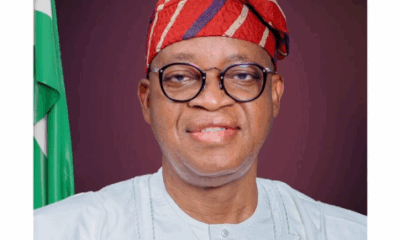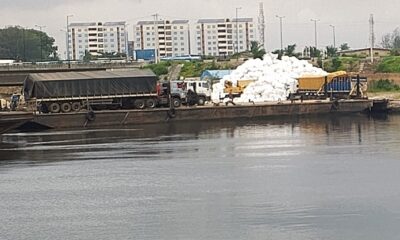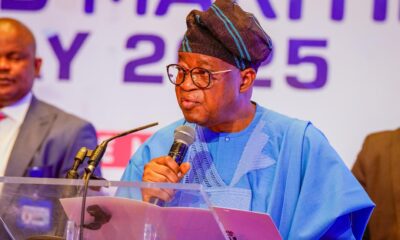Uncategorized
SEREC Mulls Nigeria’s Stronger Relevance in FIATA

BY GBOGBOWA GBOWA
The Sea Empowerment and Research Center (SEREC) in a position paper has expressed nostalgia over Nigeria’s declining interest in the International Federation of Freight Forwarders Associations (FIATA), and has urged for efforts to reconnect and maintain a stronger presence.
SEREC Head of Research, Fwdr Eugene Nweke Rff in a statement said that in the dynamic world of global logistics, few platforms carry as much weight as FIATA . He opined that for Nigeria, a country with immense trade potential and a strategic location in West Africa, FIATA membership should be a springboard to global relevance.
Yet, as the Sea Empowerment and Research Center (SEREC) observes, Nigeria’s engagement with FIATA has been a mix of promise, tension, and underutilized opportunity.
Nigeria’s FIATA Footprint: A Promising Start
Nigeria is officially listed in FIATA’s country directory, with numerous freight forwarding firms registered as individual members. The Council for the Regulation of Freight Forwarding in Nigeria (CRFFN), established by Act No. 16 of 2007, serves as the national regulatory body. Its mandate includes professional development, registration, and international alignment — including affiliation with FIATA.
This institutional setup gives Nigeria a structured foundation. The presence of many FIATA-member firms reflects grassroots enthusiasm and a desire to connect globally.
A History of Friction and Missed Opportunities
Despite this foundation, Nigeria’s journey within FIATA has been rocky. As far back as 2011, tensions flared between CRFFN and NAGAFF, with the latter questioning Nigeria’s standing in FIATA. In 2020, media reports criticized CRFFN for failing to maintain Nigeria’s FIATA registration. By 2022, Nigeria faced the risk of delisting — a serious blow to its international credibility.
These disputes reveal deeper institutional fractures. When national bodies lack cohesion or transparency, global organizations like FIATA may hesitate to engage fully.
Strengths Nigeria Can Build On
Nweke says Nigeria’s freight forwarding sector is not without assets:
*A large economy and trade volume offer scale and experience.
*CRFFN provides legal legitimacy and regulatory structure.
*Many firms are already FIATA members, showing active interest.
*The mandate for training and standards exists — it just needs activation.
Gaps That Undermine Nigeria’s FIATA Influence
SEREC identifies several critical weaknesses, which includes:

-Institutional friction between CRFFN and associations erodes unity.
-Compliance lapses threaten Nigeria’s membership status.
-Low representation in FIATA leadership limits influence.
-Underutilization of FIATA’s training and standards weakens competitiveness.
-Reputation risks from potential delisting could deter international partners.
-Fragmented stakeholder alignment dilutes the benefits of global engagement.
Strategic Actions for Relevance and Reform
SEREC proposes a bold roadmap to reposition Nigeria:
Unify the Sector: Resolve internal disputes and present a credible national voice.
Ensure Compliance: Maintain active FIATA membership and participation.
Cultivate Leadership: Groom candidates for FIATA board roles and set national representation goals.
Leverage FIATA Resources: Adopt global standards, training, and digital tools.
Collaborate Regionally: Partner with West African neighbors to advocate for shared logistics interests.
Boost Visibility: Host FIATA events and showcase Nigeria’s logistics success stories.
Manage Risks Proactively: Monitor compliance and prepare defenses against formal complaints.
According to SEREC, if Nigeria steps up, the rewards are substantial and includes:
- Influence global freight policy with an African perspective.
- Access cutting-edge training and digital tools.
- Attract international partnerships and funding.
- Elevate the competitiveness of Nigerian logistics firms, and
- Lead West Africa as a regional freight powerhouse.
SEREC’s strong message is that Nigeria must move beyond politics and inertia, noting that whereas the freight forwarding profession holds immense potential for national development — but only if it is unified, professionalized, and globally engaged.





































